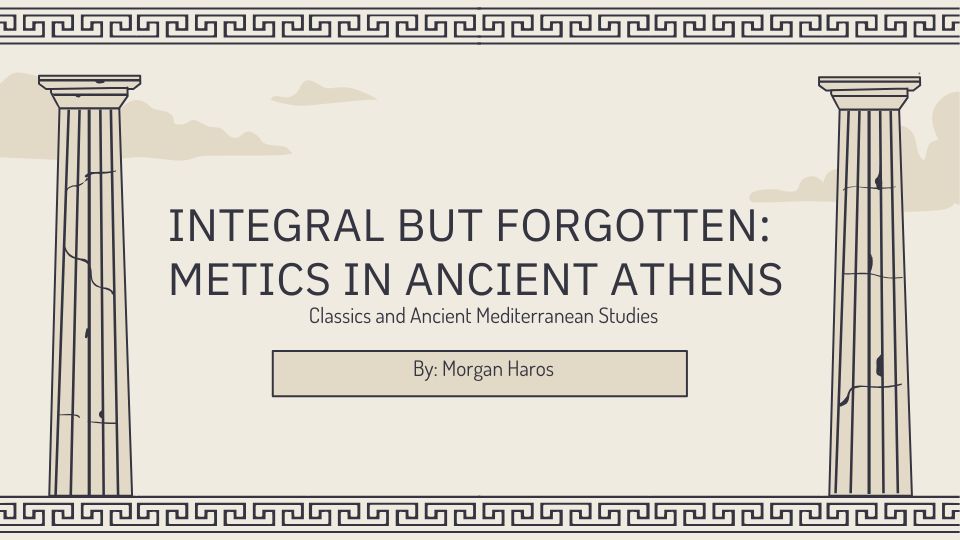
INTEGRAL BUT FORGOTTEN: METICS IN ANCIENT ATHENS
Author:
Morgan Haros ’25Co-Authors:
Faculty Mentor(s):
Stephanie Larson, Classics and Ancient Mediterranean StudiesKevin Daly, Classics and Ancient Mediterranean Studies
Funding Source:
n/aAbstract
Every civilization has contained foreign residents, and Ancient Athens was no exception. In Classical Athens (489-323 BCE), these foreign residents and freed slaves were known as metics. The “metic” label came from the tax they had to pay: the metoikion, or metic tax. While foreign resident status most likely existed throughout city-states across Greece, Athens is the location best documented. Many of these documents come from wills and court cases, giving glimpses of the daily life of Athens’ non-citizen residents. Metics commonly worked as craftsmen, bankers, and people of commerce. A large number of philosophers also lived as metics, including Aristotle. Yet, although Athenians allowed metics to live and work in their city-state, metics faced numerous legal restrictions, limiting their rights and reinforcing their status as outsiders.